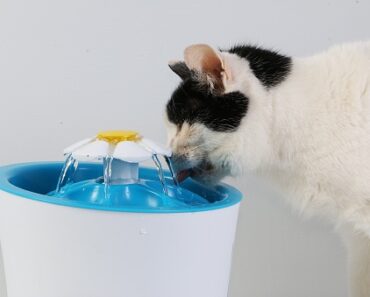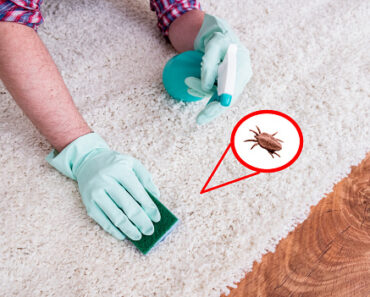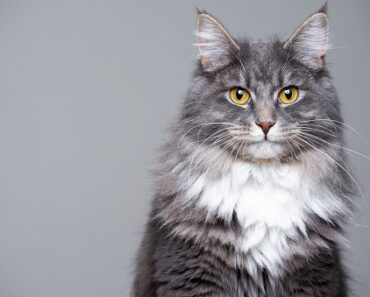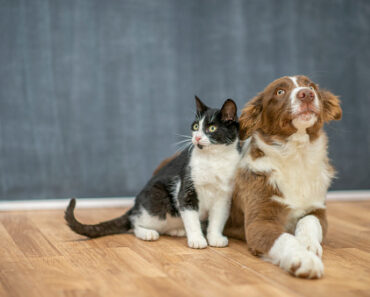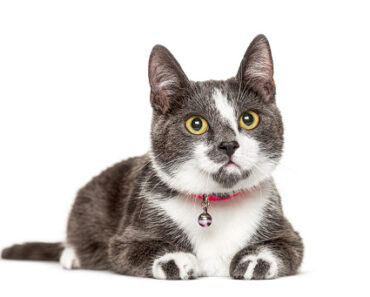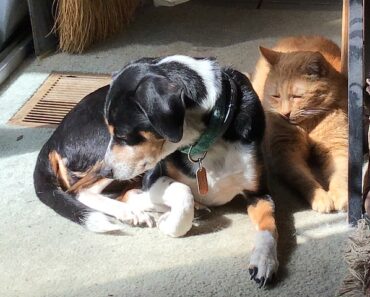
Formula milk, essential to replace mother’s milk
Of course, mother’s milk is still ideal for your kitten because it contains all the nutrients she needs, including the building blocks of her natural defenses. However, if the cat is not or no longer being breastfed by its mother, in the event of her death or of an abandoned cat, it becomes essential to give her formula. Caution: a lack of milk is the main cause of mortality in kittens!
The cat drinks according to its needs, so it should never be forced to drink. He drinks the quantity necessary for his good development, that is to say, as for his food, in small quantities and several times during the day.
However, for the first weeks, he must be fed with a bottle specially designed for kittens because he is unable to lap. Never press on the bottle to make him suck faster. If he has difficulty to drink, it is surely because the hole of his nipple is too small. So pierce small holes in the teat with a needle but be careful not to make too many, to avoid a too fast suckling.
Absolutely avoid giving your cat cow’s milk, because the cat is no longer able to digest lactose once it is weaned. Don’t give him more adult cat milk, which is not adapted to the kitten’s nutritional needs. Above all, keep in mind that milk is not a substitute for water! So always leave a bowl of water available for your pet.
Ideally, the kitten is breastfed by its mother during its first two months. But since the mother has less and less milk to give her kitten, the kitten will have to start feeding solid food. However, this must be done very gradually. Do not hesitate to ask a veterinarian for advice.
The kitten’s first meals
As early as three weeks of age, the kitten can start eating solid foods such as special kitten pate, for example. If your little feline is still being breastfed by its mother, you can give her pate to encourage her kitten to do the same by emulation. He will imitate his mother and taste her food.
On the other hand, for abandoned kittens, it is better to mix the kitten pate with formula at first to make it softer and easier to eat. Decrease the amount of milk mixed with her pate gradually to eventually eliminate it completely. You can start feeding her solid food between the fourth and fifth week of age.
You can also soak her kibbles in a few drops of water or even crush them so that they are not too hard and therefore better adapted to the kitten’s teeth. Caution: a too quick transition to solid food can damage the young kitten’s stomach.
Feeding a weaned kitten
Weaning, which marks the beginning of the feline’s independence, generally occurs between six and eight weeks. However, most cats begin to nibble kibble at about three to four weeks of age.
Once weaned, his diet changes and becomes very specific: the kitten will thus have to be fed exclusively with kitten kibbles and pates. This special kitten food is rich in protein, which promotes the development of healthy tissues and organs. It also contains a high concentration of minerals such as calcium, phosphorus, magnesium, zinc and iron to help them develop strong bones and teeth.
Cats also need taurine because it contributes to the absorption of lipids and acts as an essential antioxidant to prevent certain risks such as irreversible damage to eyesight, reproductive disorders, cardiovascular disease or serious and irreversible abnormalities in the development of the fetus.
This is why we strongly advise you to accustom your cat to super premium kibbles from a very young age, if possible without cereals, as these are not part of the cat’s strictly carnivorous diet. The cereal-free Quality Sens kitten kibbles will perfectly meet your kitten’s dietary needs.
On the other hand, avoid standard supermarket kibbles, which are very low in nutrients, rich in carbohydrates and consist mainly of cereals. Super premium food is more expensive, but you will need to feed her smaller quantities to meet her nutritional needs. In addition, it will save you many visits to the vet.
A balanced and varied diet
Taking care of his diet from the first months of life also means putting all the chances on his side so that he doesn’t become obese or develop urinary stones. This is why diets that are not varied enough are to be avoided. Cats quickly get used to the food they are given and are wary of new foods, so they will have a lot of trouble changing their diet.
Quickly get him used to eating a variety of foods with different flavors (meat, fish) and types of food (kibbles, pates). This is all the more important since cats learn very quickly to make the law with their master, so it is important to start as soon as possible. The first eight days are the most important for your cat, so make sure that he takes the right food reflexes from a young age.
Kittens have a small stomach but a big appetite. Give him several small meals during the day. If you have a heavy eater, get your cat used to eating at set times. Note that a kitten must gain 100 grams per week, so keep a close eye on its weight and consult a veterinarian if necessary.
Transition to an adult cat food
By 10 to 12 weeks of age, the transition to solid food should be complete. In the first six months of his life, the kitten gains 75% of his adult weight. It develops in a very short period of time, whether it is its muscles, bones, coat, teeth or complete immune system.
That said, even though most cats reach their final size around six months of age, this does not yet make them adult cats. Their bones still need to strengthen and their bodies still need to fill out. Therefore, do not give them adult cat food before they are twelve months old.
Caution: this change must be done gradually or your cat will develop digestive problems. Therefore, during this transition period, mix kitten food and adult cat food, gradually rebalancing the mix more and more in favor of adult cat food until you give your cat exclusively adult cat food. Concretely, start with 1/10 adult cat kibble and 9/10 kitten kibble, the next day 2/10 adult cat kibble and 8/10 kitten kibble and so on for about ten days until you completely replace the old ones with the new ones.
To know
Leftovers from your own meals are absolutely to be avoided! Not only are they totally unsuitable for their dietary needs, but your cat may develop bad eating habits and no longer want to eat the food that is normally intended for them.
Be aware that food supplements are generally not necessary for kittens, except for those based on essential fatty acids for the skin and coat or those that stimulate immunity.
Also, think about toy distributors. They are ideal for kittens because they allow them to exercise while eating, in addition, of course, to satisfy their hunting instinct. Finally, catnip can be very useful, especially if your kitten lives in an apartment, to get her used to purging herself by regurgitating her hair balls and tubes.

